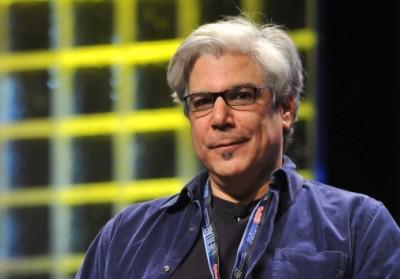One of the things I like the most about True Blood is the excellent music that the show uses. In case you haven’t noticed there has been a lot of original music in television and movies in recent years, you’re not only hearing the work of the respective artists, but also the work of the music supervisor — a role that has emerged as a new A&R force in the evolving music industry.
Gary Calamar is True Blood’s music supervisor and we think he’s among the best. Gary also does the music for other shows, like Dexter and House, but his roots are in Alan Ball’s world since he got his start on Alan’s ground breaking show, “Six Feet Under”.

The Music Supervisor’s job is to find the right [musical] fit for the narrative, for the scene,” says John Houlihan, who has supervised music for films including all three Austin Powers films and Training Day, as well as the CBS series “The Defenders.” “The challenge is finding the right music out of so much music out there.”
Music placed in television series, movies and commercials has helped propel the careers of many indie artists — Apple commercials alone have featured music from indie bands such as the Blue Van, the Boy Least Likely To and the Fratellis, among others.
But making the right musical connection can sometimes be like finding a needle in a haystack. While music has come at music supervisor Gary Calamar from every direction, he usually relies on music libraries and performing rights organizations to seek out new music, but it also comes in serendipitous ways. For example, Calamar had never heard indie singer/songwriter Cary Ann Hearst’s song “Hell’s Bells,” but the title alone was enticing enough for Calamar to give it a listen. The next stop for her song was the end credit crawl on an episode of the HBO series “True Blood.”
“It’s rare when it happens that way,” says Calamar, who also hosts a radio program on KCRW in Los Angeles. Gary’s show can be streamed so you don’t have to live in LA to hear it. He is on every Sunday night.
Tess Taylor, president of the National Association of Record Industry Professionals, thinks placement of music in television shows, movies and commercials offers more opportunities for indie artists than radio.
“Radio is concentrated and getting added to playlists generally requires promotion campaigns and big budgets that are beyond the reach of the average artist,” says Taylor.
But while radio may be challenging, the number of opportunities for indie musicians in TV and film has increased in recent years with cuts in production budgets. However, with film studios being open to the idea of lower-cost indie music, there’s also no shortage of aspiring artists wishing to, literally, score those opportunities. Music supervisors email inbox’s are”choked” with submissions from music libraries, record labels and other sources.
But how does one become a music supervisor?
“Get let go from a major record label,” jokes Houlihan.
The punch line is a bit of a dark humor commentary on the industry landscape that’s seen many former record label employees try their hands at music supervision. But while Houlihan quickly points out that music supervisors have to be intimately familiar with the workflow of films and television, he also acknowledges the newfound power of the position.
“A lot of what we do is what record labels had done for years,” he says. “Find new music and find a place for it.”
To read this entire article go to: grammy.com
